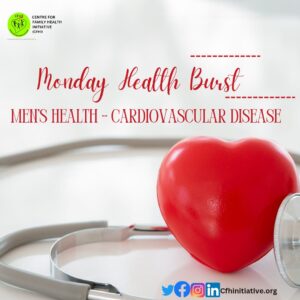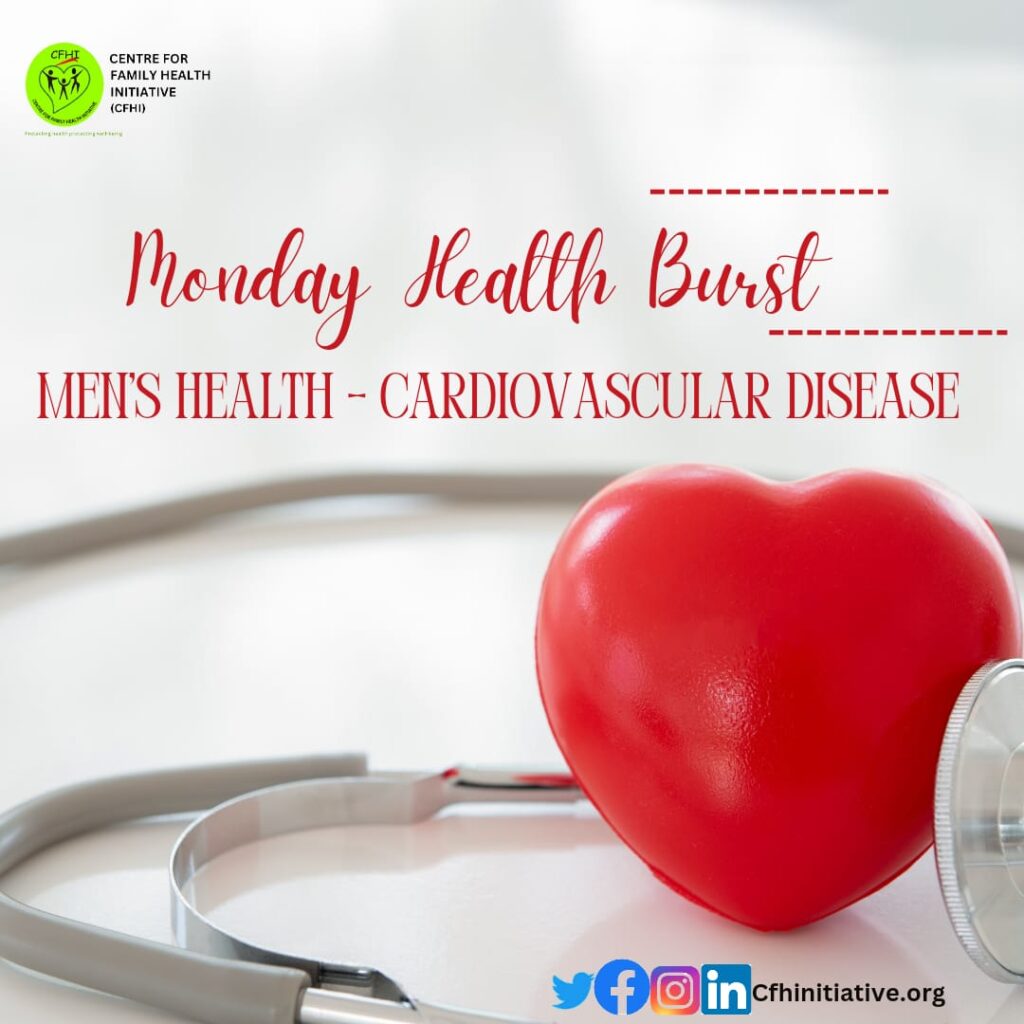Cardiovascular disease refers to a class of conditions that affect the heart and blood vessels.
According to WHO in the year 2021, cardiovascular diseases (CVDs) are the leading cause of death globally, taking an estimated 17.9 million lives each year.
Risk Factors:
Men have unique risk factors for cardiovascular disease that may differ from those of women. Some common risk factors for men include:
- Age: The risk of developing cardiovascular disease increases with age, particularly after the age of 45 for men.
- High blood pressure: Men are more likely to develop high blood pressure compared to women, especially at a younger age.
- High cholesterol: Elevated levels of LDL cholesterol (often referred to as “bad” cholesterol) and low levels of HDL cholesterol (often referred to as “good” cholesterol) can increase the risk of cardiovascular disease in men.
- Obesity: Excess body weight, especially around the waist, increases the risk of developing cardiovascular disease in men.
- Smoking: Men who smoke or have a history of smoking have a higher risk of heart disease compared to nonsmokers.
- Diabetes: Men with diabetes are at an increased risk of developing cardiovascular disease, as diabetes can damage blood vessels and contribute to other risk factors such as high blood pressure and high cholesterol.
Symptoms:
The symptoms of cardiovascular disease in men can be similar to those experienced by women. However, men are more likely to experience chest pain or discomfort as the primary symptom of a heart attack. Other symptoms may include shortness of breath, pain radiating to the arm, jaw, or back, nausea, lightheadedness, and cold sweats. It is important to note that some men may experience “silent” heart attacks with minimal or no symptoms.
Prevention:
To reduce the risk of cardiovascular disease, men can take several preventive measures, including:
- Adopting a healthy lifestyle: Engage in regular physical activity, eat a balanced diet rich in fruits, vegetables, whole grains, lean proteins, and low-fat dairy products, and maintain a healthy weight.
- Quitting smoking: If you smoke, seek assistance to quit, as this will significantly reduce your risk of developing cardiovascular disease.
- Managing blood pressure and cholesterol: Regularly monitor your blood pressure and cholesterol levels. If they are elevated, work with your healthcare provider to develop a plan to manage them effectively.
- Controlling diabetes: If you have diabetes, follow your healthcare provider’s recommendations to manage your blood sugar levels and minimize the risk of cardiovascular complications.
- Managing stress: Find healthy ways to cope with stress, such as exercising, practicing relaxation techniques, or engaging in hobbies and activities you enjoy.
- Regular check-ups: Visit your healthcare provider for routine check-ups and screenings to assess your cardiovascular health and identify any potential issues early.
A healthcare expert should be consulted for tailored guidance and to go over any worries you may have about cardiovascular disease or your general health.
Monday Health Burst is an initiative of CFHI to address issues of basic health concern. Join us every Monday on all our social media platforms for more episodes.




